А. Роджер Экерч - На исходе дня. История ночи
- Название:На исходе дня. История ночи
- Автор:
- Жанр:
- Издательство:Азбука
- Год:2010
- Город:Санкт-Петербург
- ISBN:978-5-389-01075-8
- Рейтинг:
- Избранное:Добавить в избранное
-
Отзывы:
-
Ваша оценка:
А. Роджер Экерч - На исходе дня. История ночи краткое содержание
На исходе дня. История ночи - читать онлайн бесплатно полную версию (весь текст целиком)
Интервал:
Закладка:
39. The Rules of Civility (London, 1685), 114–115, passim; Norbert Elias, The Civilizing Process: The Development of Manners…, trans. Edmond Jephcott, 2 vols. (New York, 1978–1982); Ruff, Violence, 7–8; Penelope Corfield, "Walking the City Streets: The Urban Odyssey in Eighteenth-Century England," JUH 16 (1990), 132–174; Jan Bremmer and Herman Roodenburg, eds., A Cultural History of Gesture (Ithaca, N.Y., 1992), passim.
40. Sir Thomas Overbury, His Wife (London, 1622); Feb. 8, 1660, Pepys, Diary, I, 46; Schindler, "Youthful Culture," 275; Thomas Bell, May 2,1666, York Depositions, 142; WJ, Mar. 23,1723.
41. Richard A. Page and Martin K. Moss, "Environmental Influences on Aggression: The Effects of Darkness and Proximity of Victim," Journal of Applied Social Psychology 6 (1976), 126–133.
42. Francis Lenton, Characterismi: or, Lemons Leasures… (London, 1631); Robert E. Thayer, The Origin of Everyday Moods: Managing Energy, Tension, and Stress (New York, 1996), passim.
43. Carolyn Pouncy, ed., The “Domostroi": Rules for Russian Households in the Time of Ivan the Terrible (Ithaca, N. Y., 1994), 81; Arne Jansson, From Swords to Sorrow: Homicide and Suicide in Early Modern Stockholm (Stockholm, 1998), 125.
44. F. G. Emmison, ed., Elizabethan Life: Disorder; Mainly from Essex Sessions and Assize Records (Chelmsford, Eng., 1970), 206; Matthiessen, Natten, 133; Ruff, Violence, 126; Muchembled, Violence, 31–32.
45. Francis Henderson, June 11, 1777, Assi 45/33/l/14а; Plain Advice to Hard-Drinkers… (London, 1796), 10; Pieter Spierenburg, "Knife Fighting and Popular Codes of Honor in Early Modem Amsterdam," in Pieter Spierenburg, ed., Men and Violence: Gender, Honor, and Rituals in Modern Europe and America (Columbus, Ohio, 1998), 109; Julius R. Ruff, Crime, Justice and Public Order in Old Regime France: The Sénéchaussées of Libourne and Bazas, 1696–1789 (London, 1984), 80–81.
46. Dietz, Surgeon, 194; Johnson, London, 17; Muchembled, Violence, 32; Beattie, Crime, 93; Schindler, Rebellion, 215–216.
47. Matthiessen, Natten, 96.
48. "Palladio," Middlesex Journal, or, Chronicle of Liberty (London), July 30,1769; Shakespeare, Othello, 1,1, 75; William Devenant, The Wits (London, 1636); Thomas, Religion and the Decline of Magic, 15; Johan Goudsblom, Fire and Civilization (London, 1992), 144–145.
49. James Gabriel Fyfe, ed., Scottish Diaries and Memoirs, 1550–1746 (Stirling, Scot., 1928), 259; Samuel H. Baron, ed. and trans., The Travels of Olearius in Seventeenth Century Russia (Stanford, Calif., 1967), 112; Penny Roberts, "Agencies Human and Divine: Fire in French Cities, 1520–1720," in William G. Naphy and Penny Roberts, eds., Fear in Early Modem Society (Manchester, 1997), 9.
50. Stephen Porter, "Fires in Stratford-upon-Avon in the Sixteenth & Seventeenth Centuries," Warwickshire History 3 (1976), 103, passim.
51. Thomas, Religion and the Decline of Magic, 333; Mar. 16, 1701, Cowper, Diary; Matthiessen, Natten, 121–122.
52. Sir Richard Blackmore, Prince Arthur (London, 1695), 190; E. L. Jones et al., A Gazetteer of English Urban Fire Disasters, 1500–1900 (Norwich, 1984).
53. Roy Porter, London, a Social History (Cambridge, Mass., 1995), 85; Sept. 4,1666, Evelyn, Diary, III, 454; Neil Hanson, The Great Fire of London: In that Apocalyptic Year (Hoboken, N. J., 2002).
54. NYWJ, Sept. 26,1737; SJC, Aug. 4,1785; Roberts, "Fire in French Cities," 9—27.
55. Mar. 30,1760, "Stow, and John Gate's Diary," Worcester Society of Antiquity Proceedings (1898), 270; Carl Bridenbaugh, Cities in the Wilderness: The First Century of Urban Life in America, 1625–1742 (Oxford, 1971), 55–63,206–213,364-372; Carl Bridenbaugh, Cities in Revolt: Urban Life in America, 1743–1776 (Oxford, 1971), 18,100–105, 292–294.
56. Ludwig Holberg, Moral Reflections & Epistles, ed. P. M. Mitchell (Norvik, Eng., 1991), 169; "The Diary of George Booth," Journal of the Chester and North Wales Architectural Archaeological and Historic Society, New Ser., 28 (1928), 40; Enid Porter, Cambridgeshire Customs and Folklore (New York, 1969), 205.
57. John Bancroft, The Tragedy of Sertonius (London, 1679), 20. См. также: Benjamin Keach, Spiritual Melody (London, 1691), 28; Rowlands, Night Raven.
58. Benjamin Franklin, Writings, ed. J. A Leo Lemay, ed. (New York, 1987), 220–221; "Philanthropos," LEP, Jan. 25,1763; Carl Bridenbaugh, Vexed and Troubled Englishmen, 1590–1642 (New York, 1967), 144; The Life and Errors of John Dunton… (London, 1818), 11,606.
59. Paroimiographia (English), 5; Thomas Tusser, Five Hundred Pointes of Good Husbandrie, eds. V. Payne and J. Sidney (London, 1878), 179; Jan. 13, 1669, Josselin, Diary, 545; Nov. 3, 1710, Raymond A. Anselment, ed., The Remembrances of Elizabeth Freke, 1671–1714 (London, 2001), 270; Mar. 22,1683, J. E. Foster, ed., The Diary of Samuel Newton (Cambridge, 1890), 84; PG, Feb. 18,1729.
60. Hugh Platte, The Jewell House of Art and Nature… (1594; rpt. edn., Amsterdam, 1979), 50.
61. July 20,1709, Sewall, Diary, II, 622; George Lyman Kittredge, The Old Farmer and His Almanack… (Cambridge, Mass., ca. 1904), 147; DUR, July 11,1787.
62. Matybeth Carlson, "Domestic Service in a Changing City Economy: Rotterdam, 1680–1780" (Ph. D. diss., Univ. of Wisconsin, 1993), 157–158; Wilson, English Proverbs, 167.
63. Grub Street Journal (London), May 16,1734.
64. PA, July 15, 1763; William Langland's Piers Plowman: The C Version, trans. George Economou (Philadelphia, 1996), 25; Christopher R. Friedrichs, The Early Modern City, 1450–1750 (London, 1995), 276–277.
65. William Hector, ed., Selections from the Judicial Records of Renfrewshire… (Paisley, Scot., 1876), 239; Bernard Capp, "Arson, Threats of Arson, and Incivility in Early Modem England," in Peter Burke et al., eds.. Civil Histories: Essays Presented to Sir Keith Thomas (Oxford, 2000), 197–213; Matthiessen, Natten, 121.
66. Goudsblom, Fire and Civilization, 158; Roberts, "Fire in French Cities," 22; Country Journal: or the Craftsman (London), June 24,1738.
67. S/C, May 25, 1769; Frank McLynn, Crime and Punishment in Eighteenth-Century England (London, 1989), 85; Ruff, "Crime, Justice, and Public Order," 262; BC, May 20,1761.
68. Augustus Jessopp, ed., The Autobiography of the Hon. Roger North (London, 1887), 41; WJ, Aug. 15,1724; Effectual Scheme, 69–70.
69. Bob Scribner, "The Mordbrenner Fear in Sixteenth-Century Germany: Political Paranoia or the Revenge of the Outcast?" in Evans, ed., German Underworld, 29–56; Penny Roberts, "Arson, Conspiracy and Rumor in Early Modem Europe," Continuity and Change 12 (1997), 9-29.
70. Jacqueline Simpson, The Folklore of Sussex (London, 1973), 135–136; Capp, "Arson," 204; Thomas D. Morris, Southern Slavery and the Law, 1619–1860 (Chapel Hill, N. C, 1996), 330–332.
71. Weinsberg, Diary, 1,125; SJC, Nov. 4, 1769; Thomas, Religion and the Decline of Magic, 531–533.
72. Grose, Dictionary; 6 Anne c. 31; PG, Apr. 30, 1730. См. также: Effectual Scheme, 69; Michael Kunze, Highroad to the Stake: A Tale of Witchcraft, trans. William E. Yuill (Chicago, 1987), 147.
73. Nashe, Works, 1,386.
74. Rudolph Braun, Industrialisation and Everyday Life, trans. Sarah Hanbury Tenison (Cambridge, 1990), 84.
ЧАСТЬ ВТОРАЯ
Прелюдия
1. James M. Houston, ed., The Mind on Fire: An Anthology of the Writings of Blaise Pascal (Porland, Ore., 1989), 165.
2. [Foxton], The Night-Piece: A Poem (London, 1719), 10. Об институтах повседневной жизни см., например: Pounds, Culture, 255–301; Cohens, Italy, 51–52, 116–125; David H. Flaherty, "Crime and Social Control in Provincial Massachusetts," Historical Journal 24 (1981), 339–360.
3. Ken Krabbenhoft, trans., The Poems of St. John of the Cross (New York, 1999), 19; James Scholefield, ed., The Works of James Pilkington, B. D, Lord Bishop of Durham (London, 1842), 340; Verdon, Night, 199–215; Paulette Choné, L'Atelier Des Nuits: Histoire et Signification du Nocturne dans l'Art d'Occident (Nancy, France, 1992), 146–150; John M. Staudenmaier, "Denying the Holy Dark: The Englightenment Ideal and the European Mystical Tradition," in Leo Marx and Bruce Mazlish, eds., Progress: Fact or Illusion (Ann Arbor, Mich., 1996), 184–185.
4. Daniello Bartoli, La Ricreazione del Savio (Parma, 1992), 191–192; John Northbrooke, A Treatise wherein Dicing, Dauncing, Vaine Playes or Enterluds with Other Idle Pastimes… (London, 1577), 20; John Clayton, Friendly Advice to the Poor… (Manchester, 1755), 38.
5. Piero Camporesi, Exotic Brew: The Art of Living in the Age of Enlightenment (Maiden, Mass., 1994), 13.
6. Thomas Amory, Daily Devotion Assisted and Recommended… (London, 1772), 20; George Economou, trans., William Langland's Piers Plowman: The C Version (Philadelphia, 1996), 188; Cotton Mather, Meat Out of the Eater (Boston, 1703), 129; Keith Thomas, Man and the Natural World: A History of the Modem Sensibility (New York, 1983), 40.
Глава третья
1. Moryson, Unpublished Itinerary, 350.
2. Lean, Lean's Collectanea, I, 352; Gerhard Dohm-van Rossum, History of the Hour: Clocks and Modem Temporal Orders, trans. Thomas Dunlap (Chicago, 1996), 204; Remarks 1717, 160; Sigridin Maurice and Klaus Maurice, "Counting the Hours in Community Life of the 16th Century," in Klaus Maurice and Otto Mayr, eds., The Clockwork Universe: German Clocks and Automata, 1550–1650 (New York, 1980), 148.
3. T. P. Wiseman, Remus: A Roman Myth (Cambridge, 1995), 125; James D. Tracy, ed., City Walls: The Urban Enceinte in Global Perspective (Cambridge, 2000); R. A. Butlin, "Land and People, c. 1600," in T. W. Moody et al., eds., Early Modem Ireland, 1534–1691 (Oxford, 1991), 160–161; Remarks 1717, 160; Matthiessen, Natten, 18; Ripae, Nocturno Tempore, ch. 19.
4. Adam Walker, Ideas… in a Late Excursion through Flanders, Germany, France and Italy (London, 1790), 69; Verdon, Night, 81; Batavia: or the Hollander Displayed… (Amsterdam, 1675), 50; Alexander Cowan, Urban Europe, 1500–1700 (London, 1998), 138–142.
5. John Chamberlayne, Magna Britannia Notitia: or, the Present State of Great Britain… (London, 1723), 1,255; Cowan, Urban Europe, 39–40.
6. Anglicus, On the Properties of Things, trans. John Trevisa (Oxford, 1975), I, 539; Christopher R. Friedrichs, The Early Modem City, 1450–1750 (London, 1995), 23.
7. Corinne Walker, "Esquisse Pour une Histoire de la Vie Nocturne: Genève au XVIIIe Siècle," Revue du Vieux Genève 19 (1989), 74; Moryson, Itinerary, I, 41; Remarks 1717,101–104; Gerhard Tänzer, Spectacle Müssen Seyn: Die Freizeit der Wiener im 18. Jahrhundert (Vienna, 1992), 55.
Читать дальшеИнтервал:
Закладка:
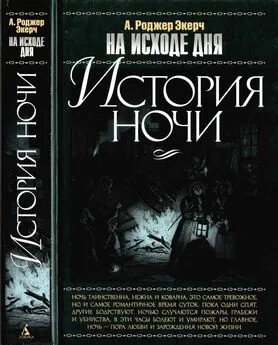

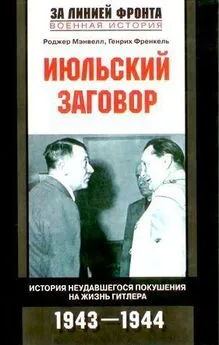
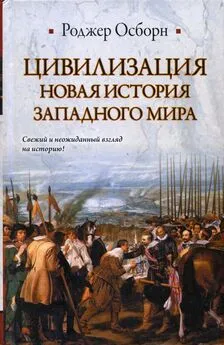
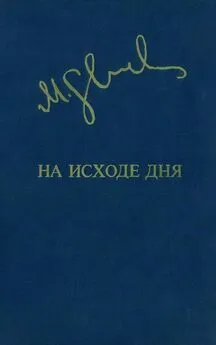
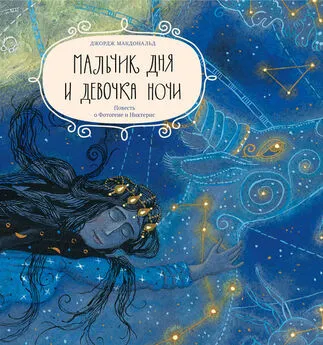

![Елена Асеева - Четыре дня, четыре ночи [СИ]](/books/1086617/elena-aseeva-chetyre-dnya-chetyre-nochi-si.webp)
